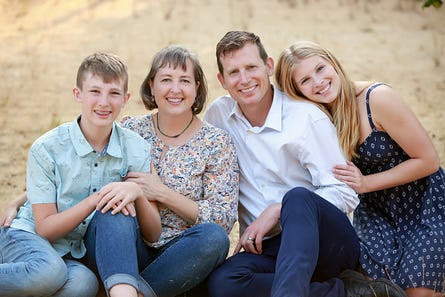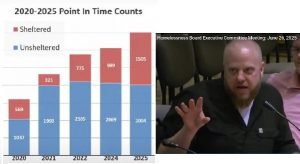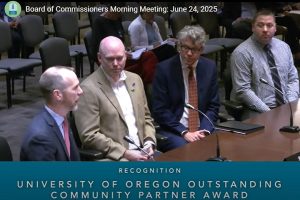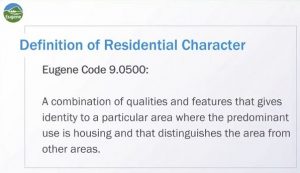Lessons learned: Respect others, collaborate
3 min read
by Marty Wilde
As I look forward to my next chapter of public service, I’ve been thinking about lessons I have learned since entering elective office. These lessons help me understand politics on a deeper level and represent my constituents better. When I’ve reached across party lines, respected interests that were different from my own, and remembered who I am ultimately accountable to, I feel like I’ve done a better job.
Make friends across party lines. In the military, we have a culture of respect, regardless of political beliefs. In Salem, I quickly discovered that personal regard is much more tied to political opinions. Those of us representing swing districts often received personal criticism for taking positions reflective of the will of our voters. I found that having friends in the other party helped me understand their interests and positions better, whether or not I agreed with them. It’s easy to be friendly with people we agree with. When we make the effort to befriend people with whom we disagree with on some issues, the friendship is often more enduring and always more illuminating.
Know the difference between an interest and a position. In the political context, an interest is a statement of values and is not itself negotiable. For instance, in developing climate policy, both protecting the environment and protecting voters from price increases are interests. A position is a concrete decision based on interests and is often subject to reasonable compromises. There could be more than one position that assures protection of interests. When legislators were discussing the transition to clean power and trying to determine the appropriate length of time to allot for achieving 100% clean power, we aimed to balance environmental protection and cost. Initial positions on how much time to allow for the transition ranged from about 15 years to indefinitely long. It would do no good to contest the validity of the interests in the debate, but we eventually decided on a transition length of around 20 years as a compromise on the positions.
Remember the voters are the boss. My job title is Representative. Voters sent me to Salem because we share values, but sometimes we differ. In a few votes, I personally supported the legislation, but it was clear my constituents did not, so I voted no. During my campaigns and periods of service, I have spoken personally with thousands of voters. My knowledge of their interests may still be imperfect, but, when it is clear, my job is first and foremost to represent them. In political life, often we lead, but sometimes we follow. We should always stay close to the will of the voters.
Government is a collaborative enterprise that requires us to understand the values of the voters, including those who constitute “the opposition.” Having strong personal values does not preclude collaboration, but rather gives the foundation that makes it possible. If we understand each other’s interests, we can more often find positions that work for all of us. In this season of negative campaigning, we should remember that mutual respect makes good governance possible.
Marty Wilde represents Oregon House District 11. He is a candidate for the Lane County Circuit Court. Contact him by email at wildefororegon@gmail.com.





